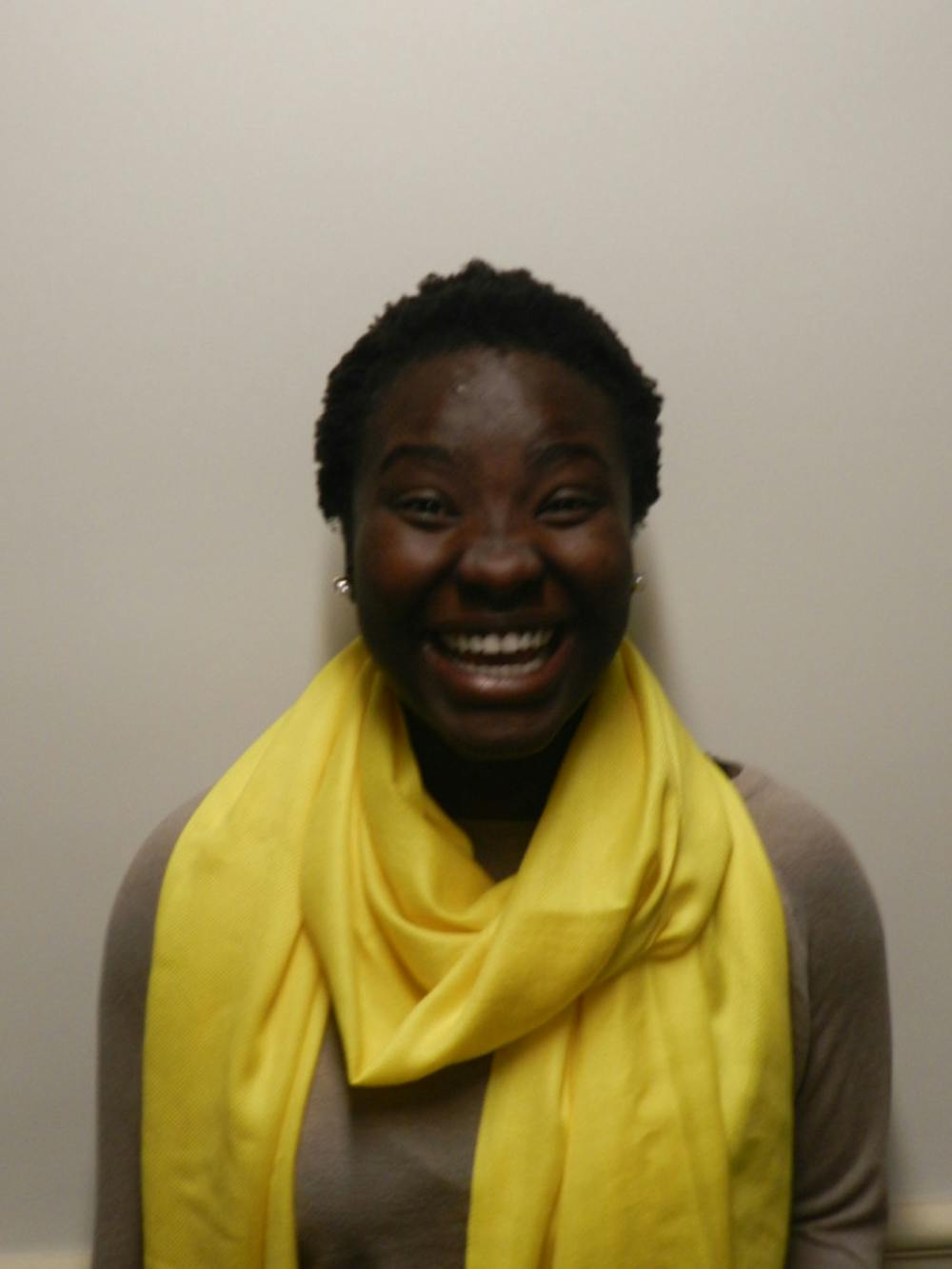On Friday, March 15, Barbara Ofosu-Somuah ’13 found out that she was selected as a Watson fellow for the 2013 - 2014 academic year for her project titled “The Choreography of Black Hair: A Framework for Cultural Inquiry.”
The Watson Fellowship grants graduating seniors a $25,000 stipend for a full year’s worth of travel outside of the United States in order to pursue research on a topic of personal interest. The selected fellows must remain out of the U.S. for the full 365 days in order to receive funding.
This year there were over 700 candidates for the fellowship. Participating schools then selected 148 finalists to compete on the national level, from which 40 fellows were selected. Middlebury itself had 27 applicants this year, up from last year’s 23, and submitted four finalists — Jordie Ricigliano ’13, Davis Anderson ’13, Anoushka Sinha ’13 and Ofosu-Somuah. Sinha was selected as an alternate for the fellowship and will find out on March 29 if she will be named a fellow.
This year’s fellows hail from eight different countries and 14 different states.
Director of Internships Peggy Burns said there was fierce competition to become a finalist for Middlebury.
“It is always such a tough decision to narrow it down to four [students],” Burns wrote in an email. “It was an honor and privilege to work with these four Watson nominees.”
Ofosu-Somuah’s research will take her to five different countries: Suriname, Brazil, the Dominican Republic, Jamaica and South Africa. Her project aims to look at the cultural effects and implications of different hairstyles for black women in these countries.
“I guess my founding question is how you conceptualize beauty within yourself and within the black culture,” explained Ofosu-Somuah.
She explained that her research will focus on the different responses to and effects of two different types of hair for black women — the “eurocentric” style, described by Ofosu-Somuah as chemically-straightened or braided hair, or “afrocentric” style, which she said includes afros, curly hair or leaving hair in its “natural state.” She also expressed her belief in the importance of this research in greater cultural contexts.
“I think in the end I’m trying to say that for black women, our hair is just as important to us and to our lives as our race, our gender and our sexuality,” she said.
Ofosu-Somuah will be working at a natural hair festival in Suriname for one month. She will then spend two months in Brazil — one working at a natural hair salon and the second at a women’s empowerment organization. From there, she will move to the Dominican Republic, where she will work at a beauty school. She’ll spend three months in Jamaica working at Curly-Centric, a self-described support group for Jamaican women with natural hair, and finally will end her travels in South Africa, working at a micro-financing group called Jabu Stone that “aims to promote natural hair care and pride.”
She cited her interest in the cultural implications of black women’s hair as beginning with her time at Middlebury. Ofosu-Somuah started as a first-year with braids and noticed that her hair became a topic of conversation. Students would often ask if they could touch her hair, but would then touch her without waiting for her verbal permission.
“And so for the first time at Middlebury, it oftentimes felt like my body was not my own,” she said. “It was kind of an object of fascination that people wanted to explore, without waiting for my permission to do so.”
Ofosu-Somuah then cut her hair, going “natural” during the summer after her first year at Middlebury. When she cut her hair, she received extremely negative reactions from her family and community at home, and then continued to be an “object of fascination” at the College.
It was at this time that Ofosu-Somuah became interested in the implications of her natural hair, and through research she learned that there was a worldwide “natural hair movement.”
“Without me knowing it, I had joined this movement,” she said. “And I hadn’t expected to, but now I was a part of it, and I wanted to know more.
“So that’s where my project stems from — hair for black women around the world and how people respond to it and how black women maneuver and negotiate different spaces based on their hair.”
Associate Professor of American Studies and Director of the Center for the Study of Race and Ethnicity Susan Burch, who wrote Ofosu-Somuah’s recommendation for the fellowship, believed the connection between Ofosu-Somuah’s personal life and her research proposal was essential to the future success of the work.
“[Ofosu-Somuah’s] project to consider identity and culture in indigenous communities of color through the framework of hair provides an ideal opportunity for her to integrate her cumulative academic and personal experiences,” wrote Burch in an email. “Working with and learning from other communities will undoubtedly open her to new understandings of herself, her own life story and the broader world.”
Roger Sandwick, the mentor for Ofosu-Somuah’s Posse group, expressed his pride in her selection as a fellow.
“The whole [Posse] group is proud of her achievement,” wrote Sandwick in an email. “In Barbara, [the Watson Fellowship] has certainly found and acknowledged a future leader of our society. I don’t doubt she will change the world.”
There will be an information session in late April for students interested in applying for the Watson Fellowship in the future.
Ofosu-Somuah Receives Watson

Comments



